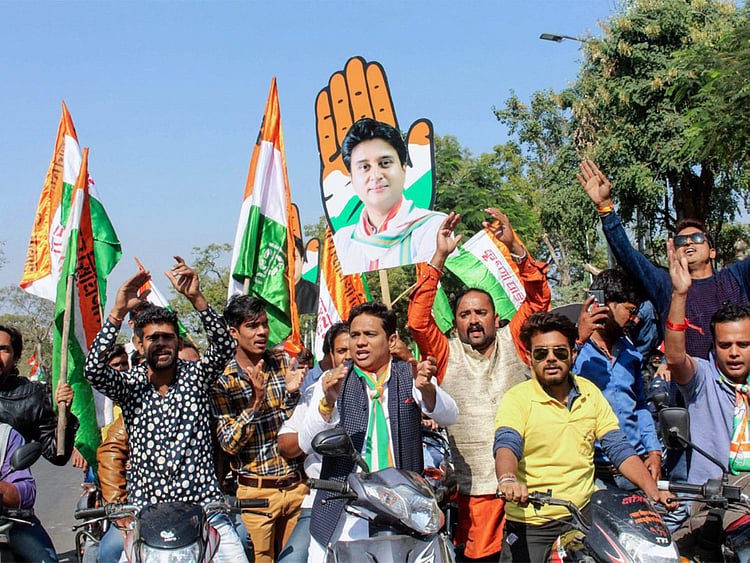Assembly elections in India change political equations
It remains to be seen if these results will herald an end to the one-sided narrative

Assembly elections in five Indian states, less than six months before the world’s largest democracy goes to national polls, have been billed as a referendum on Prime Minister Narendra Modi. That might be an exaggeration since there are plenty of issues at play in any assembly election, ranging from anti-incumbency to local and regional factors. However results from Madhya Pradesh, Rajasthan, Chhattisgarh (comprising the Hindi heartland), and Telangana and Mizoram were nothing short of an eye-opener.
If India’s ruling Bharatiya Janata Party (BJP) thought that the 2019 general elections will be a cakewalk, they might have to rethink their plans now. The road to political power in India is paved with a million intents, but it often goes through the Hindi heartland — precisely the turf BJP lost in these polls. Suddenly both Modi and his party look a whole lot less invincible, the brouhaha has somewhat tapered off and its dominance over large parts of the country decisively broken.
Will these results herald the end of the one-sided political narrative that has been dominant in India for the last few years? It’s difficult to to say. Even during these elections, the BJP resorted to low blows against the Gandhis. Modi’s taunts on Rahul Gandhi, the Congress president, in an attempt to make it a contest between Naamdar vs Kaamdar (dynast vs performer), didn’t work. The BJP’s Hindutva plank, led by Uttar Pradesh Chief Minister Yogi Adityanath’s anti-minority narrative, did not help its cause either. The party’s political phraseology, calling for a Congress-mukt Bharat (Congress-free India), too seemed to have had a reverse impact.
In the three Hindi-speaking states, locked in a direct contest with the BJP, the Congress rallied, raising hopes of revival of fortunes for the opposition. For the Congress, which will assume power in three crucial states, agrarian discontent and structural reform, must take precedence. As far as the BJP is concerned, the party will have to do some soul-searching in the run up to 2019. Let’s not forget that despite its shortcomings, BJP’s vote share hasn’t substantially reduced in these elections, making it very much a force to reckon with.
In the end, democracy is about the battle of ideas and ideologies. No matter how prescient your spin, there must always be space and respect for your political opponent. These elections have just proven that the country retains a vast appetite for competing narratives and the Indian electorate is both attentive and aware of the shifting political realities.
Sign up for the Daily Briefing
Get the latest news and updates straight to your inbox
Network Links
GN StoreDownload our app
© Al Nisr Publishing LLC 2026. All rights reserved.